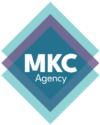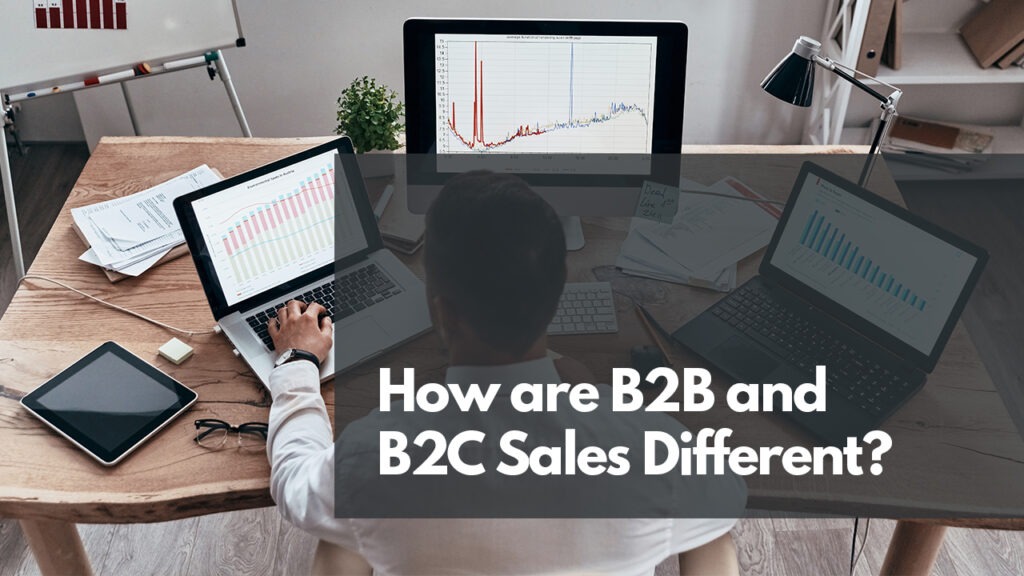First things first…let’s sort out the letters, shall we? B2B stands for “Business to Business” and B2C is shorthand for “Business to Consumer”.
In other words, a B2B company is selling products or services meant for other businesses to use, whilst a B2C business is aiming to sell directly to individuals.
B2B and B2C have some similarities, especially when it comes to marketing. Both types call for a unique sales process and a carefully-crafted marketing strategy. Sales are closely tied into marketing; weak marketing communications will have a negative impact on sales in a heartbeat. Finally, customer service is king. Whether you’re selling to a business or an individual, they will need TLC and be able to reach your customer service team quickly and reliably.
Now that we’ve got the similarities down pat, there are some important differences between the way B2B and B2C companies sell and operate. Here is a rundown on the major divergences.
B2B Sales
B2B businesses come in many shapes and sizes. Wholesalers who sell to retailers, tire manufacturers that sell to car manufacturers, accounting firms that offer tax services to corporations…these are just some examples. B2Bs can sell products or services; but one thing is for sure–they will be selling to top executives or professional buyers. The decision-makers in B2B sales rarely boil down to one person; the decision is often made with the input of multiple people, which means that the sales process tends to be more elaborate, more structured and takes more time.
When it comes to B2B sales, the approach you take as a seller needs to be more professional and formal, since you’re dealing with high-level executives or people with decision-making authority. In many cases, you also have to deal with a lot of “gatekeepers” like secretaries, receptionists or assistants before being able to reach your intended target. B2B buyers are extensively trained in the art of buying–in other words, they can see your tactics coming from a mile away. You’ll need to be savvy and use effective selling methods to get past their ninja buying skills.
Finally, dealing with C-Suite executives means you need to know your product or service inside-out and be ready to answer any and every question and objection the first time. There are no “I’ll get back to you later” chances; you might not get another shot at your pitch. It’s also crucial, in a B2B sales situation, to do research on your prospective client and make sure your sales strategy is tailored to their unique needs, wants and persona.
Finally, B2B sales usually means an ongoing relationship. You hope to stay in business with them in the long term to continue meeting their needs as they evolve.
B2C Sales
B2C businesses can look like many things: a supermarket selling to customers, a retail store, an online app for dog-lovers, a roofing company that offers its services to local homeowners.
Dealing with consumers is quite a bit different. When selling to consumers, they tend to respond well to the latest, most popular sales tactics. They are also prone to buying things on a whim, so there is less “wooing” necessary. Your potential market is much wider with B2C, so reaching your ideal B2C customer isn’t as challenging as it is with B2B sales.
Your sales cycle tends to be shorter and more streamlined when selling directly to a consumer. Consumer sales price points vary widely by industry, but at the end of the day, you’re pitching directly to the consumer rather than trying to convince higher-ups or third parties to buy your product or service. When putting together your marketing and sales strategy, keep in mind your target demographic in order to reach the right people with your sales message. Otherwise, you can waste an inordinate amount of time and money on channels that don’t reach the people you want to sell to. Buyer personas are very helpful here.
B2C sales are more personal. Unlike B2B sales that are more formal and professionally-minded, building a rapport and gaining trust from a consumer is the most effective approach to B2C sales. Consumers respond to businesses they perceive as authentic, caring, personal and customer-focused. Sales strategies should be centered around these tenets.
While B2C sales don’t aim to develop a long-term relationship between a seller and consumer, customer outreach in the form of follow-ups and invitations to stay connected pay off with additional purchases and cross-selling opportunities that go beyond initial purchases. Having a solid outreach plan to keep new and existing customers engaged is a winning B2C sales strategy.
While B2B and B2C sales have their own unique flavour, they are both worth investing effort into doing it right. B2C sales can be hard to define and tough to master, while also being very personal. B2B sales are very challenging and the sales process is demanding, but they have the potential to be more lucrative. It’s all in having a thoughtful, well-thought-out marketing and sales strategy.
Megan Killion Consulting is a team of dedicated, experienced individuals who help brands and agencies reach their full potential through meaningful strategizing, consultation, brand building, and more. See the full list of services here, and get in touch if you’re ready to truly nail your next B2B or B2C marketing and sales strategy.

